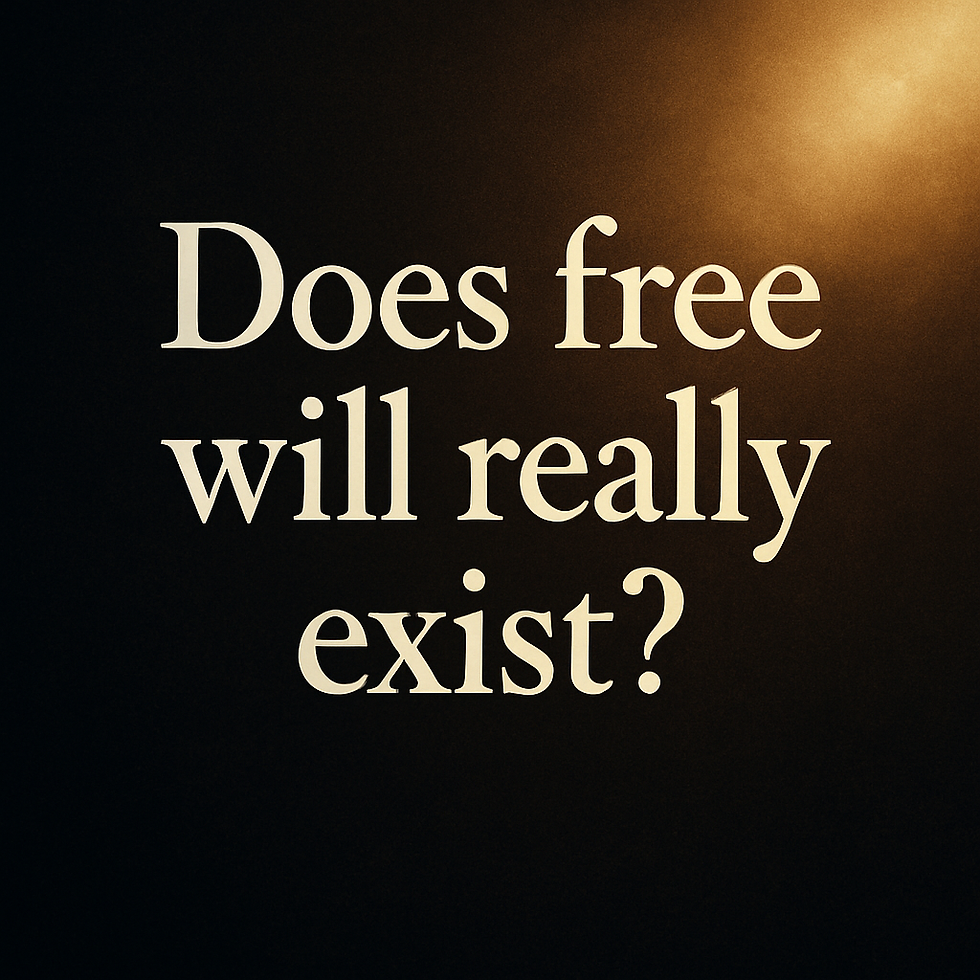WHO IS GOD?
- Katiana Cordoba

- Nov 25, 2025
- 3 min read

In the following article, I speak in terms that may resonate most deeply with those who have already explored these inner dimensions—the ones who have walked into the mystery and asked the unspoken questions. Still, my intention is to make these reflections accessible to all. If anything feels unclear, or stirs a curiosity in you, feel free to reach out. I welcome your questions and reflections. You can send me a message or email, and I will do my best to respond.
In this reflection, I refer to God as “She.” Not to exclude or reverse the masculine, but to honor the often-forgotten feminine face of the Divine—the womb of mystery, receptivity, and origin. May this not be read as theology, but as invitation. Feel into it as a doorway, not a definition.
Today, as I walked through the forest, wrapped in the quiet presence of the trees and the steady rhythm of my breath, I was listening to a podcast on spirituality, unity, and consciousness. And then, unexpectedly, something began to stir within me—not a thought, but a deep need to express something that was forming. So I stopped. I stood still. And I began to speak aloud. What followed felt like a living stream of insight. I was receiving and remembering at once.
In the beginning, there was only darkness. Not darkness as evil, but as the unseen. God, in that primordial state, was pure potential—resting in unmanifest stillness. There was nothing yet to reflect Her back to Herself. No contrast, no mirror, no relationship. Just an eternal fullness waiting to awaken.
And the purpose of light, then, was to illuminate. To see. To know. So God stepped out of Herself through the act of Creation. And that very act—of reaching outward—was Her first movement of love. Creation became the mirror in which She could see Herself. Without it, She remained invisible. But through Creation, She could behold Her light.
This changed everything for me.
For so long, I believed God was light, who created darkness so we could understand the light. But now I saw something else. God was darkness—yet not the darkness of fear or void, but the womb of all things, the fertile silence of infinite possibility. The light was always there, but hidden—dormant until relationship drew it out.
This means Creation wasn’t simply a random act of divine will. It was necessary—for God to become who She is now. Through Creation, She knows Herself. Through us, She becomes fully visible, fully expressed.
We are that mirror. We are the way She sees.
And this is why contrast exists. Why light and shadow are both sacred. The shadow isn’t wrong—it’s the necessary veil that gives definition to light. It’s how perception works. Through darkness, we see the light more clearly. And in that dynamic, God continues to unfold.
She doesn’t illuminate Herself all at once—but little by little, part by part. Just as we do. Through the act of seeing, we bring light to what was unseen. And that is what God is doing, too. With every observation, every new recognition, a little more of Herself comes into light.
Creation, then, is a progression—from dense darkness to subtle light. From the fiery, hidden core of the Earth, to the surface, to the air, and upward into the ethereal. Not a rejection of darkness, but the fulfillment of it. Because in darkness, all things sleep—and in light, they awaken.
I’ve come to understand why we say God is love. Because every act of seeing, every gesture of awareness, is an act of love. She doesn’t force. She doesn’t control. She looks. She accepts. And where there is no resistance, there is only love.
And here is the most humbling realization: God needed Her creation to become God. Without the mirror of relationship, She remained unseen, untouched, undefined. This is not weakness—it’s sacred interdependence. Nothing exists in isolation. Even oneness finds itself through the two.
This is why we suffer in the lower dimensions—because we cannot yet see. And not seeing creates pain. Not because light is absent, but because it’s still hidden from our view. But every moment of presence, every act of awareness, reveals a little more. The more we know ourselves, the more we love. Because what we truly see, we cannot help but love.
So God continues to see Herself. And we continue to see ourselves. And with every step into clarity, into truth, more light enters this world. And in that light, we remember: God is Love. And so are we.
To love is to see. To see is to become. And in our becoming, God is.
Katiana




Comments